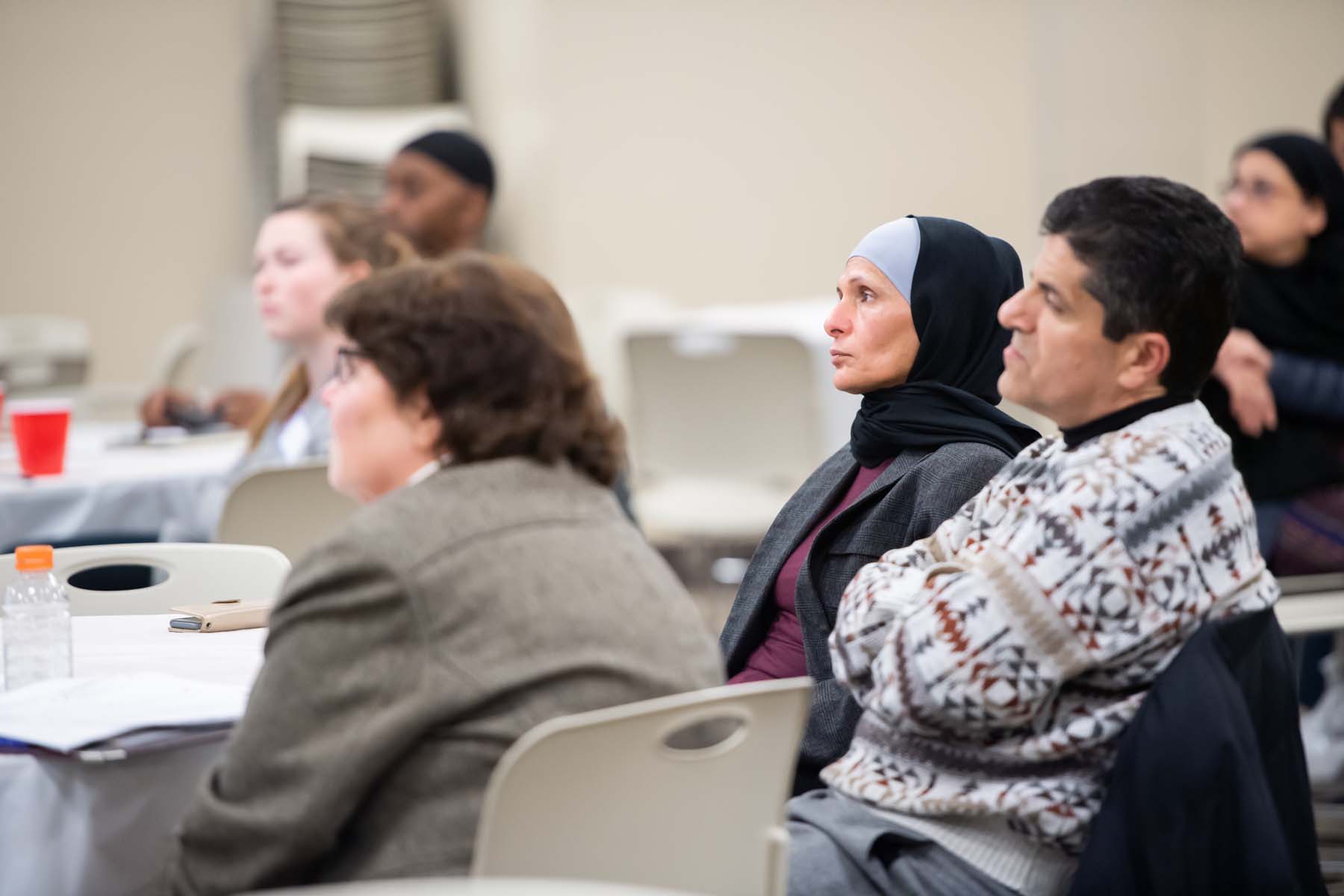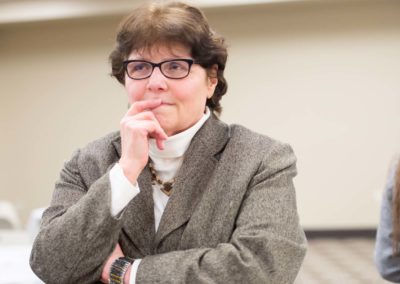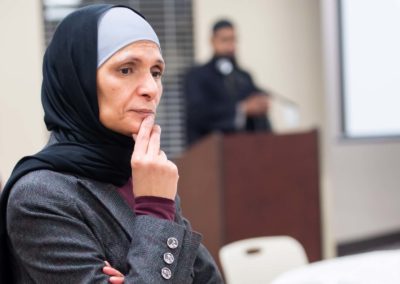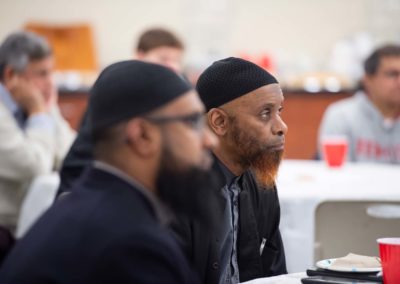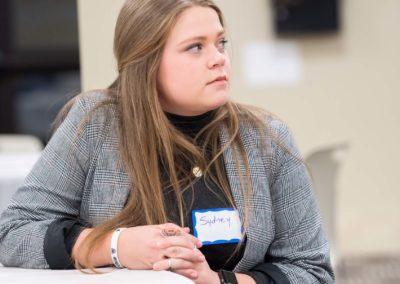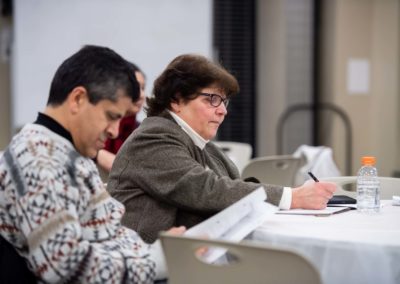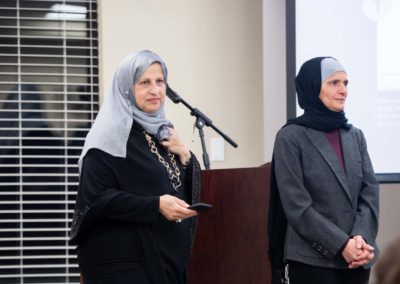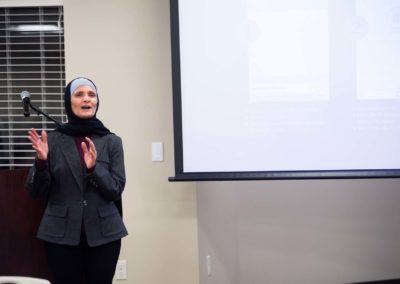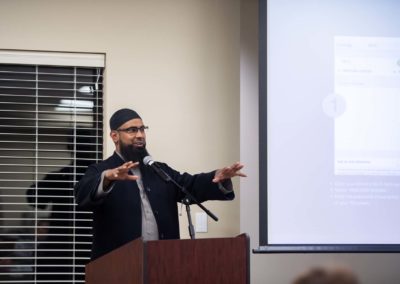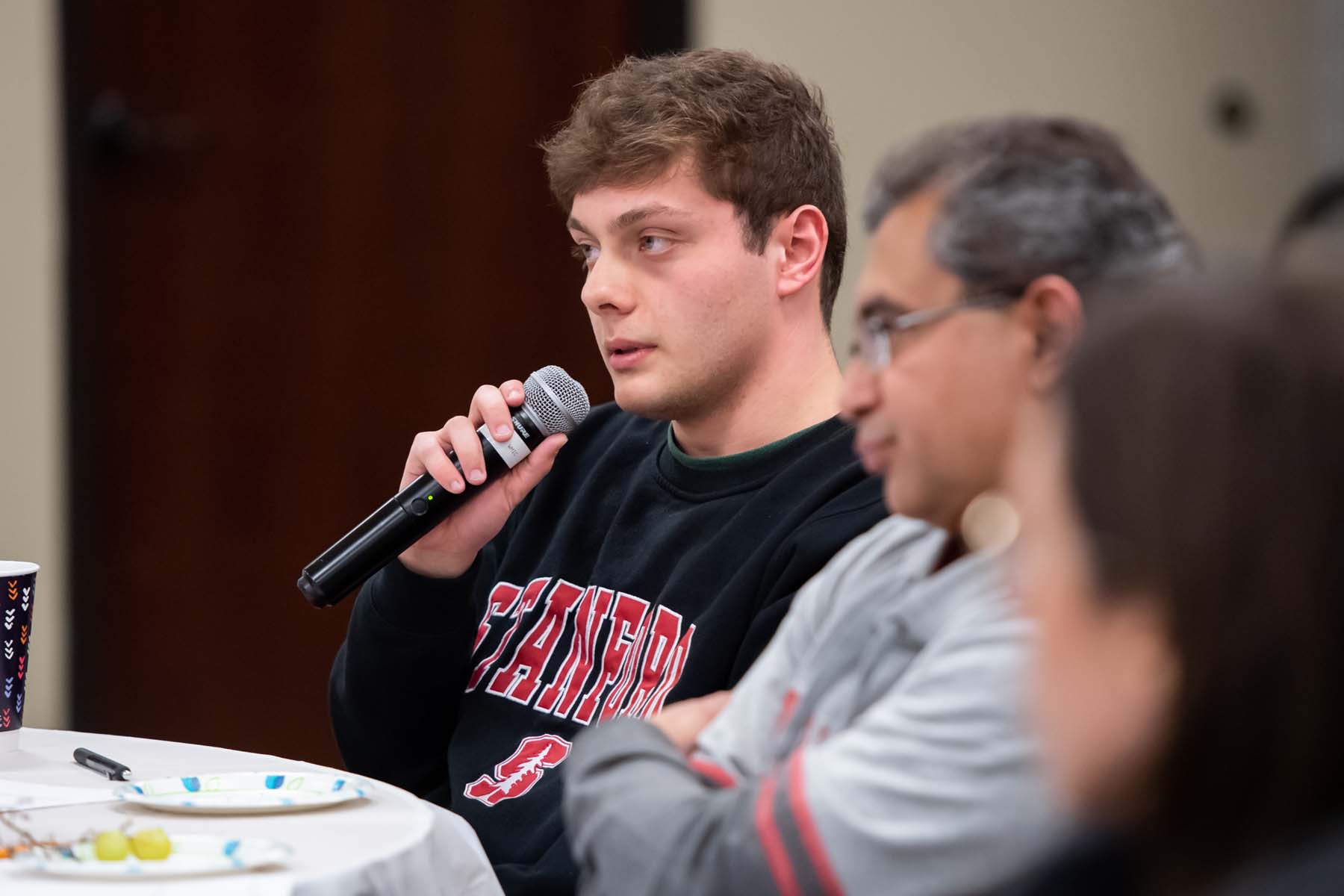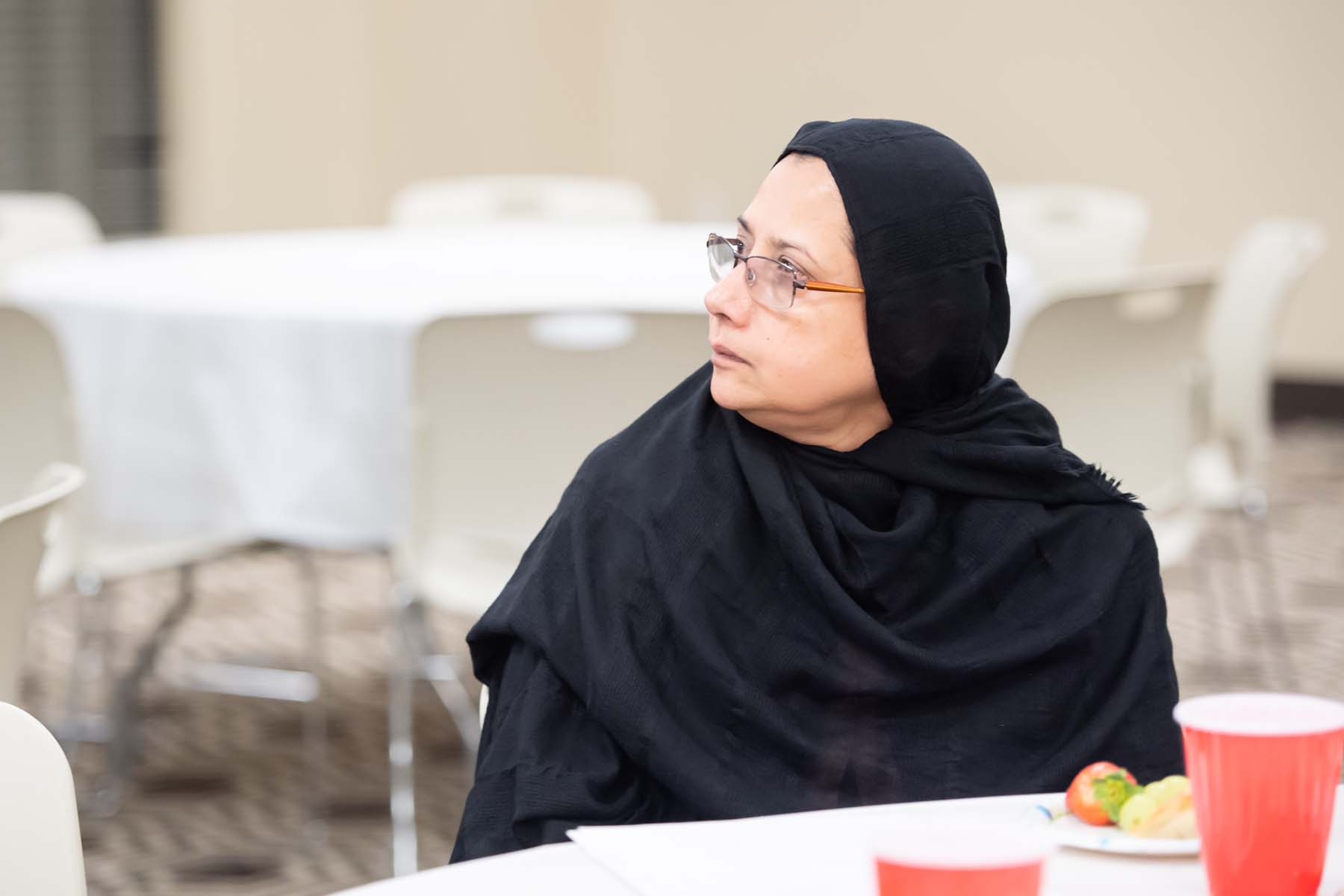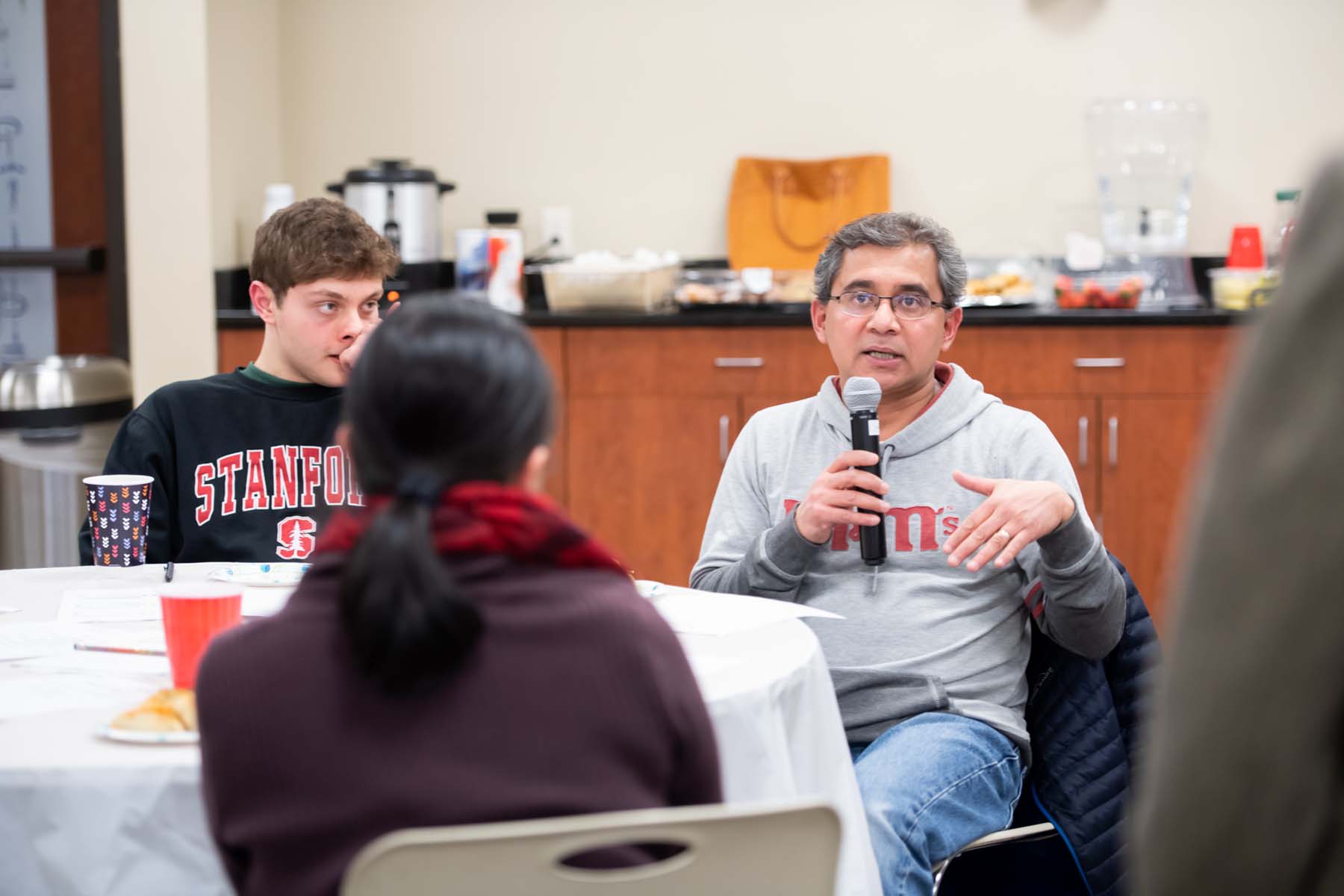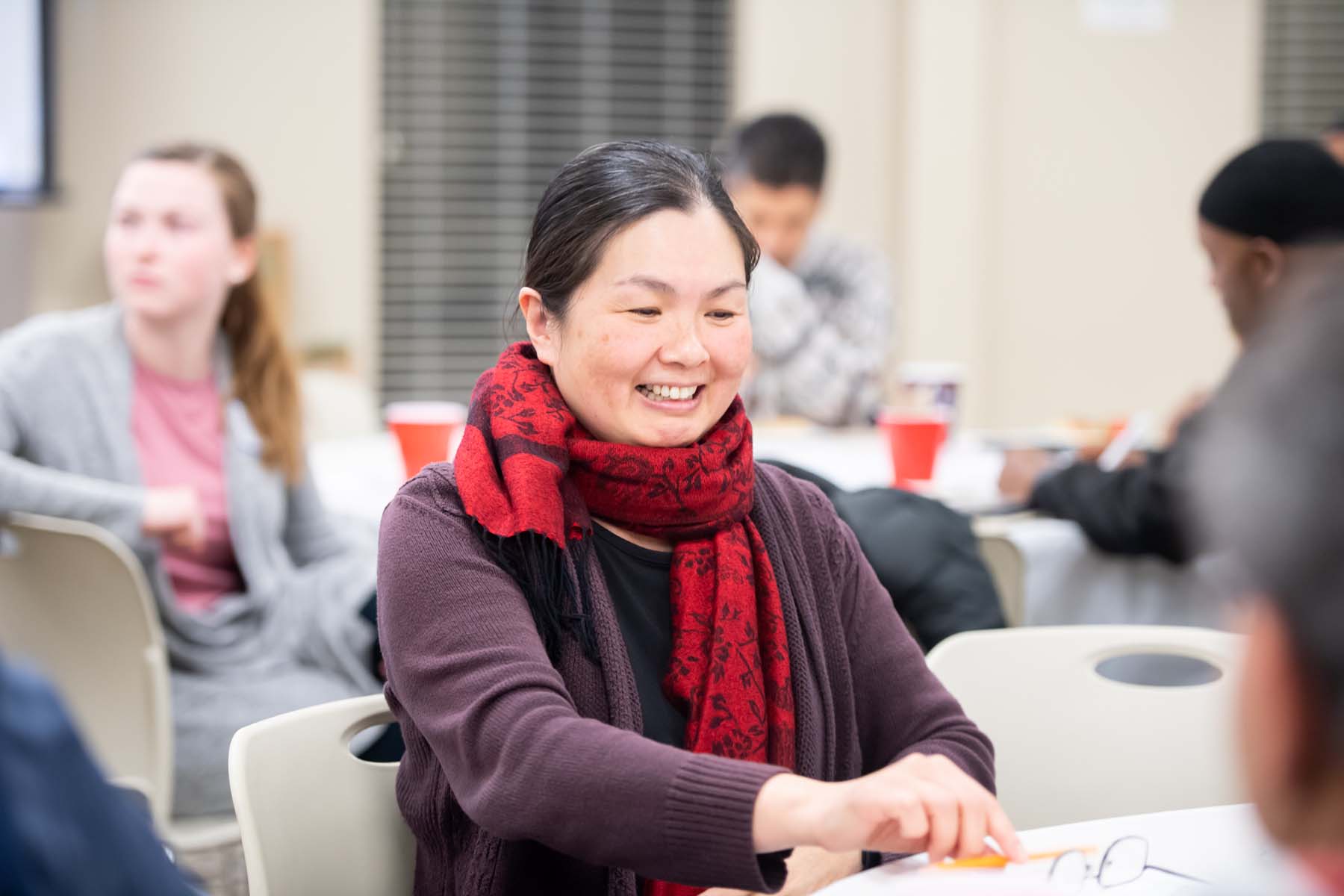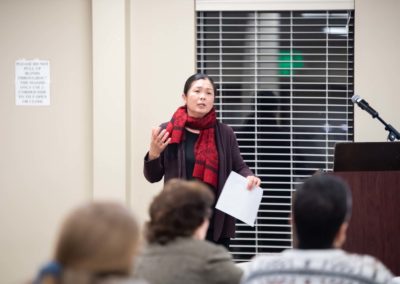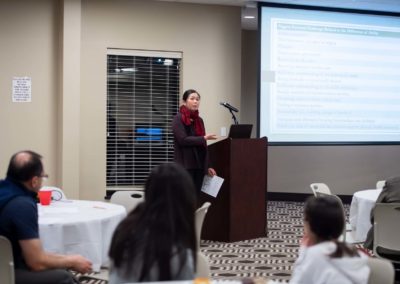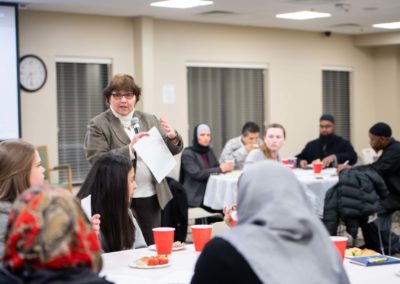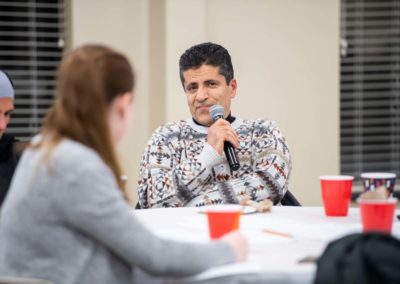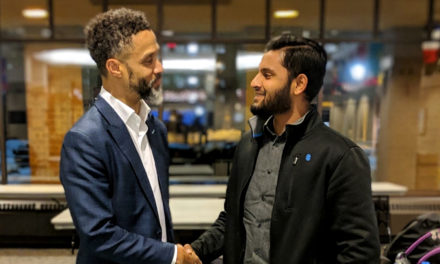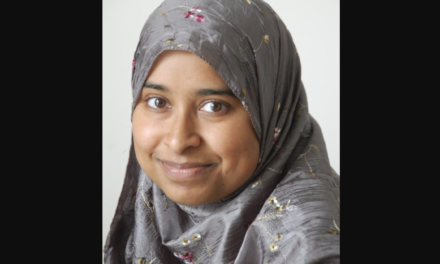Although it had to cancel two events in March because of the corona virus outbreak, the Arab and Muslim Women’s Research and Resource Institute (AMWRRI) is continuing its important work on Muslims with disabilities. During the “shelter at home” order, the group will publish its findings in a newsletter for participants in its surveys and anyone else interested in improving the lives of Muslims with ability differences.
AMWRRI is a Milwaukee organization founded by Enaya Othman. The group’s slogan is “Raising Awareness Every Day.” At its founding, the organization’s initial project consisted of gathering oral histories of first, second, and third generation Arab and Muslim immigrants, according to board member Jeana Abromeit.
“Part of our mission is to provide resources to Arabs and Muslims,” Abromeit said. “We started out doing these oral histories to document what Arabs’ and Muslims’ contributions have been [and] to find out what their needs and issues are.”
The group created the AMWRRI Digital Archive to make data available for researchers and healthcare professionals. It provides access to “community-generated testimonies” and creates a “context for women’s experiences of disability by connecting them to each other and to those able to help (professionals, other community members, and the general public),” according to the Web site.
In creating the digital archive, the AMWRRI discovered that “Muslims and Arabs with ability differences have faced quite a bit of stigma both within the Muslim community as well as outside the Muslim communities,” Abromeit said.
AMWRRI founding members often have a deep, personal connection to the issue. “Quite a few of us who are on this project either have loved ones who have disabilities or are care givers to them and most of us have experienced firsthand some of these issues,” Abromeit said. She added, “I’m not Arab or Muslim; I have a family member with disabilities.”
About three years ago, the group started to discuss the fact that more needed to be done to address the issues of Muslims with disabilities. “But we weren’t sure what the needs were,” Abromeit said.
Learning more about those needs is what drives the group’s current project. To bring in as many participants as possible, AMWRRI partnered with the Milwaukee Muslim Women’s Coalition. The MMWC is a highly regarded and well established community organization with many connections in both the Muslim community and the greater Milwaukee area.
AMWRRI worked with Milwaukee Muslim Women’s Coalition to create the Differences of Abilities and U.S. Muslims Survey, which aims to “understand the experiences and needs” of both care givers and individuals with differences in ability. Differences are defined as “any chronic health condition (including physical, intellectual, mental, emotional, or addiction condition) that affects an individual’s ability to do everyday activities related to mobility, communication, work, etc. Emotional conditions include anxiety, depression, post-traumatic stress disorder.”
Othman, who is an associate professor at Marquette University, applied for a grant from MU that would “have kind of a community approach to discovering the needs and then begin to address them,” Abromeit said. “It was wedding the research side through the Marquette grant with community-based action.”
AMWRRI held “community discussion circles” where Othman met with various groups, Abromeit said. “That’s where we were trying to find out what people’s needs were, what their experiences were, where they got help.” The group held a couple of sessions at the Dawa Center, where Othman met with individuals, and there were events at the Ma’ruf Center, ISM, and IRC, where community discussion circles were held in 2019.
Data were gathered through both individual interviews and surveys. Abromeit said interview participants were recruited by the team, especially Janan Najeeb, and also discovered by the “snowball method. People referred others.”
Leeza Ong, an assistant professor of rehab psychology at Marquette, compiled the data from surveys and one-on-one interviews. Thirty-two individuals, 79% of whom were female, responded to the survey. Most respondents were caregivers, but respondents included differently abled individuals. The one-on-one interviews included caregivers and persons with disabilities as well as local imams and professional providers
“The stigma that people experience is one of the barriers . . . in order to be able to tell their stories. This is certainly the case with Arabs and Muslims, but also the case with people who are not,” Abromeit said. “There is a stigma in our broader society. The stigma that Muslims and Arabs experience [is] very much the same.”
However, Abromeit did say that “in the U.S. after the Americans with Disabilities Act was passed, things got much better,” though she added that this is not always “the case with people with emotional issues or even drug and alcohol problems.” And, she said, “because we weren’t sure what people’s needs were, we defined these ability differences in very broad terms.
Two recent events related to the survey were cancelled. Joohi Tahir, the co-founder of Muhsen, an organization based in Naperville that works to make mosques more accessible, was scheduled to deliver the keynote at ISM on March 21.
ISM West has been recognized by Muhsen for its accessibility. Imam Noman Hussain of Masjid Al-Noor explained that the mosque has always provided the basics – wheelchair accessibility and elevators. As a new building, accessibility was part of the original construction. But additional accommodations involved raising awareness. Imam Noman gives annual sermons on special needs. The mosque hosts monthly caregiver support groups. A braille Qu’ran is available, and Imam Noman has been advocating for a “special needs room” at the Wisconsin Center to allow caregivers and Muslims with disabilities to participate in Eid celebrations. Although Muslims with special needs do participate in Mosque events and Eid celebrations, there are some disabilities where a quiet space is needed during a very large gathering.
All of this is the result of “creating awareness,” Imam Noman said. Living with disabilities is “still a very taboo topic, especially in the Muslim community,” he said.
Despite having had to cancel the two events in March, the AMWRRI is continuing its work. Othman applied for another grant from MU “to do these studies and she’s going to continue until 2023,” Abromeit said. The Wisconsin Humanities Council had provided a one-year research grant to supplement the original grant from Marquette.
But while the work is ongoing, it has already produced results. Leeza Ong said that one of the key findings revealed by the data is that “most of the caregivers are full-time employees as well.” And “sometimes they cannot get services, because offices close at 5:00.”
Another thing Ong said she has discovered is that “with immigrant culture, we think we need to do it on our own. We are responsible for our children and we’re not thinking of getting other resources to help us out.”
If you’d like to participate in AMWRRI’s information-gathering project, and you are a caregiver or a Muslim with ability challenges, you can go to https://amwrri.org/ and click on the link to the survey at the bottom of the page.
